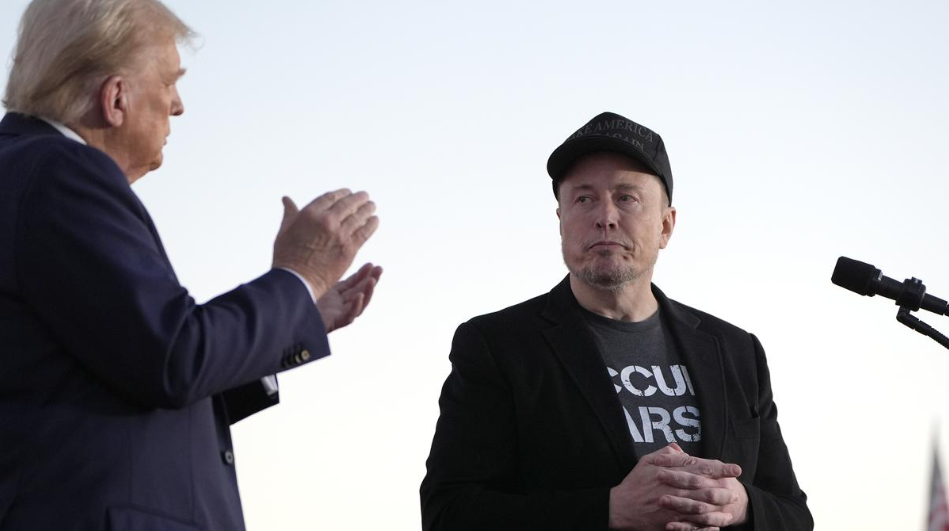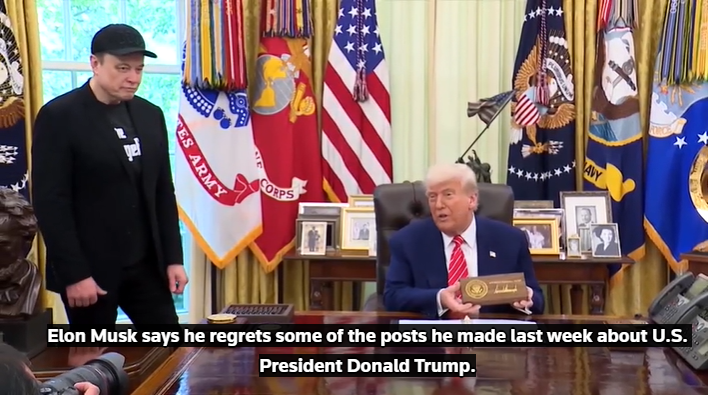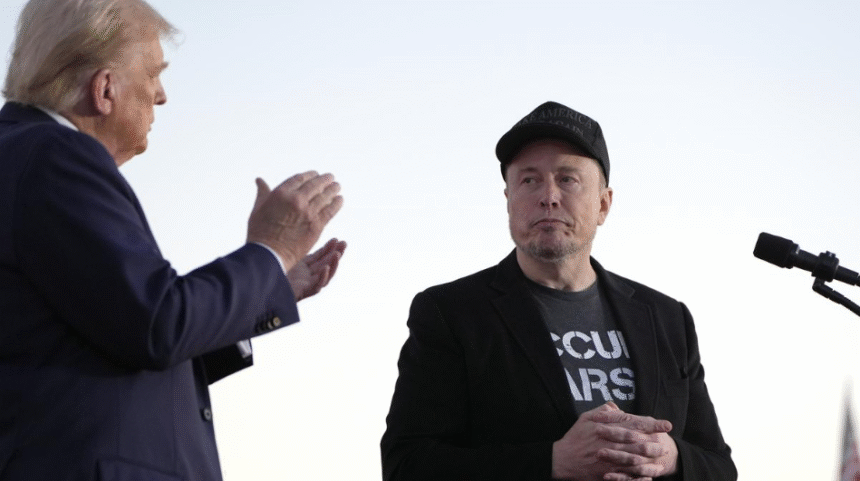1. Introduction: When Titans Collide
In the overlapping spheres of technology and politics, few figures are as polarizing and influential as Elon Musk and Donald Trump. One is the world’s richest entrepreneur, known for revolutionizing the automotive and space industries, and the other, a former U.S. President who reshaped American political discourse. Over the years, the dynamic between the two has oscillated between mutual admiration and bitter criticism.
Recently, in a rare moment of reflection, Elon Musk publicly admitted that he regrets some of the things he posted about Donald Trump on social media, sparking renewed conversation about how billionaires wield online platforms and their influence over public perception.
This article explores the timeline of Musk’s online commentary on Trump, the motivations behind his social media behavior, the significance of his recent regrets, and the broader implications for discourse in the digital age.
2. Musk and Trump: A Complicated Relationship
a. The Early Days: Courting Collaboration
Initially, Elon Musk and Donald Trump appeared to have a pragmatic relationship. During Trump’s presidency, Musk was appointed to advisory councils, Elon Musk including the Strategic and Policy Forum and the Manufacturing Jobs Initiative. At that time, both men seemed to share some common ground, particularly in areas of deregulation, infrastructure, and business.
However, the partnership was short-lived. Musk resigned from both advisory roles in 2017 after Trump announced the U.S. withdrawal from the Paris Climate Agreement, a move Musk vocally opposed, citing environmental responsibility.
b. The Fractures Appear
As Trump’s presidency unfolded, Musk’s tone became increasingly critical, especially on issues like immigration, climate change, and COVID-19 response. Musk never fully identified with either political party, but his libertarian-leaning views often clashed with Trump’s populist-nationalist rhetoric.  For the more information click on this link
For the more information click on this link
While Musk refrained from fully denouncing Trump for a long time, his posts increasingly walked the line between critique and sarcasm, especially during the 2020 election cycle and the Capitol riots of January 6, 2021.
3. Elon Musk and Twitter: Fuel for Fire
a. Musk’s Acquisition of Twitter (Now X)
In 2022, Musk made headlines by acquiring Twitter for $44 billion, rebranding it as X, and advocating for “free speech absolutism.” This reignited conversations about how the platform should handle controversial figures like Trump, who had been banned in the wake of the Capitol insurrection.
b. Lifting Trump’s Ban
Shortly after taking over Twitter, Musk reinstated Donald Trump’s account, following a public poll where users narrowly voted in favor of Trump’s return. Although Trump did not immediately return to Twitter/X (preferring his own platform, Truth Social), the decision reflected Musk’s ideological alignment with open dialogue, even for figures accused of promoting hate or violence.
However, this also brought Musk deeper into the political spotlight, Elon Musk and his posts became increasingly provocative, occasionally mocking Trump or engaging with far-right accounts that lionized the former president.
4. Posts That Sparked Controversy
Several of Musk’s posts about Trump drew backlash, both from Trump supporters and political moderates. Key examples include:
-
Mocking Trump’s age and physical health, suggesting he was “past his expiration date.”
-
Sharing memes implying Trump was part of the political “establishment,” despite his anti-elite narrative.
-
Liking or replying to posts from anti-Trump commentators, Elon Musk which contradicted Musk’s earlier neutrality.
-
Criticizing Trump’s vaccine stance as “politically motivated” rather than scientifically grounded.
Some of these posts appeared impulsive, while others seemed strategically provocative. Regardless, they contributed to a perception that Musk had turned decisively against Trump.
5. The Regret: What Musk Said
In a recent interview hosted on his own platform, X Spaces, Musk responded to a user’s question about his past comments on Trump. He paused and then said:
“You know, I’m not proud of everything I posted. Some of it went too far. I regret a few tweets I made about President Trump — not because I’ve changed my mind on policy, Elon Musk but because the tone wasn’t helpful. It was reactionary.”
This rare admission sparked immediate headlines. Musk is not known for apologies or self-censorship, so the acknowledgment carried weight.
He further added:
“We’re living in an era where everything you say lives forever. I believe in open dialogue, but I also believe in responsible speech. I’ve learned that snark, Elon Musk even when it feels good in the moment, doesn’t build bridges.”
6. Reactions from the Trump Camp
The reaction from Trump allies and supporters was mixed:
-
Some saw Musk’s statement as a sign of reconciliation, Elon Musk suggesting that the two powerful men may find common cause again in opposing what they call “woke censorship” and Big Government overreach.
-
Others dismissed the regret as too little, too late, accusing Musk of hypocrisy for reinstating Trump’s account but then mocking him publicly.
Trump himself, as of this article’s writing, has not responded directly. However, close insiders indicated that Trump still views Musk with suspicion, Elon Musk especially after the billionaire reportedly declined a public endorsement of his 2024 campaign.
7. Why It Matters: Influence, Billionaires, and Democracy
a. Billionaires and Platforms
Musk’s role as the owner of X makes his words even more consequential. When someone who controls a major global communication network expresses regret over their posts, Elon Musk it opens a window into the ethics of speech in the digital era.
Does a platform owner have more responsibility to set the tone? Can they maintain neutrality while expressing strong political opinions? Musk’s journey seems to suggest that self-regulation is as crucial as corporate governance.
b. Impact on Public Discourse
Musk’s posts often go viral, influencing narratives beyond politics—into finance, culture, Elon Musk and media. His regrets indicate a realization that impulsive expression can muddy constructive debate, especially in a time when the political temperature is high.  For the more information click on this link
For the more information click on this link
8. The Cultural Shift: Musk as a Symbol of the Internet Age
Musk’s online persona often walks the line between genius and chaos. He has used social media to:
-
Announce major Tesla updates,
-
Make market-shaking statements (sometimes leading to SEC scrutiny),
-
Troll rivals and critics,
-
Elevate fringe viewpoints into the mainstream.
His evolution—from unfiltered provocateur to a slightly more reflective communicator—may reflect a broader maturing of digital-age leadership.
9. Lessons for Public Figures in the Age of Social Media
Musk’s admission of regret holds a broader lesson for public figures who often engage in “clout-chasing” or reactionary tweeting. In a landscape where one viral post can have career-defining implications, the importance of intentional communication cannot be overstated.
His comments could encourage others to:
-
Audit their digital legacy,
-
Adopt a more measured tone, and
-
Promote principled discourse, especially on polarizing topics.
10. Looking Ahead: Will Musk and Trump Reconcile?
The future of the Musk-Trump relationship remains unclear. While both share similarities in their populist appeal, disdain for bureaucracy, Elon Musk and fondness for disruption, they also represent very different brands of influence.
Musk, driven by technology and innovation, seems less ideologically rooted, while Trump thrives on political tribalism and identity politics. A reconciliation would likely be strategic rather than ideological—driven by mutual benefit more than mutual admiration.
11. Conclusion: Regret, Responsibility, and Reckoning
Elon Musk’s acknowledgment of regret over his past posts about Donald Trump is more than just a personal revelation. It’s a signal of maturity in leadership in a digital-first world. While he remains committed to free speech, Elon Musk he now appears more conscious of how that speech shapes society.
In an era where tech moguls hold disproportionate influence over global communication, Musk’s comments offer a rare moment of introspection. Whether or not this signals a permanent shift in his communication style remains to be seen. But for now, Elon Musk the admission stands as a reminder that even titans of industry must reckon with the power—and the responsibility—of their words. ALSO READ:- Electoral Rolls Preparation in India: One of the World’s Most Rigorous and Transparent Exercises, Says CEC





